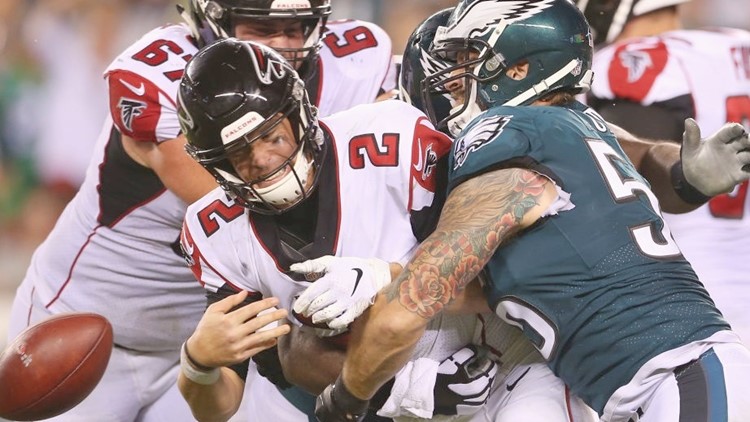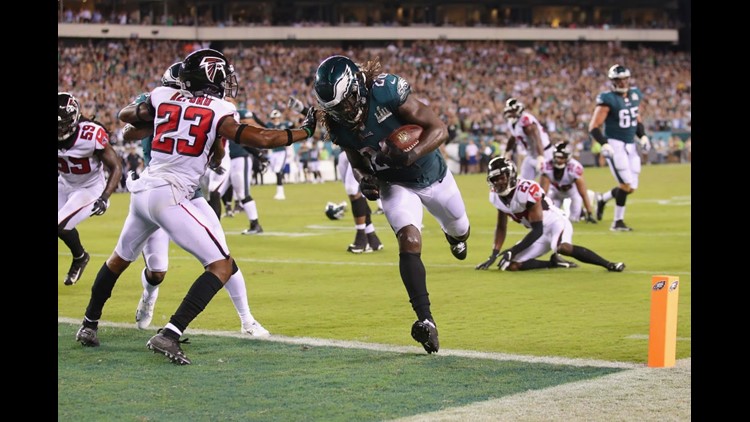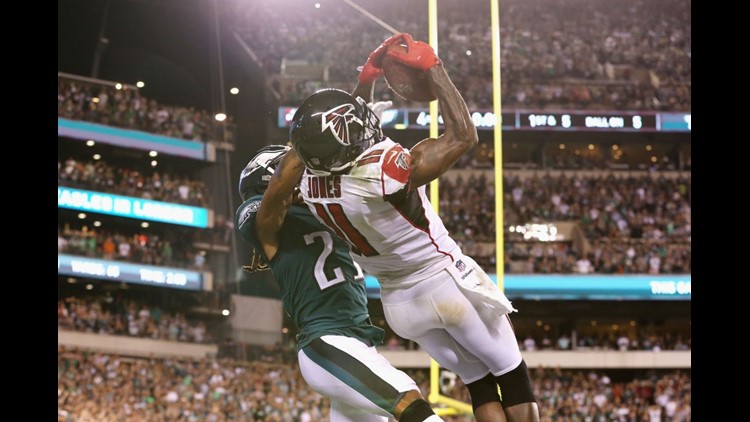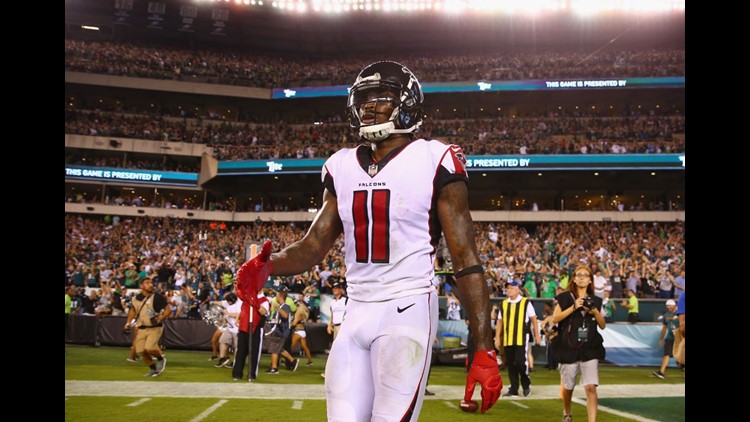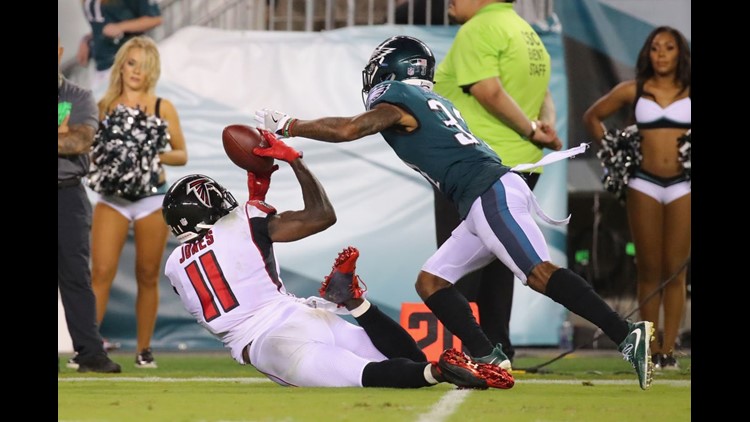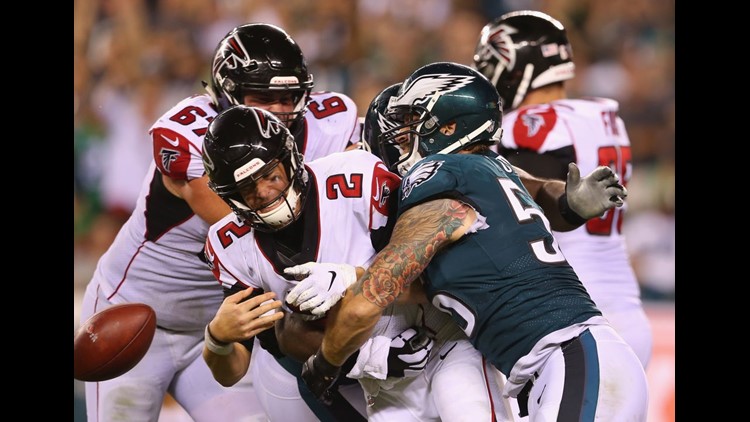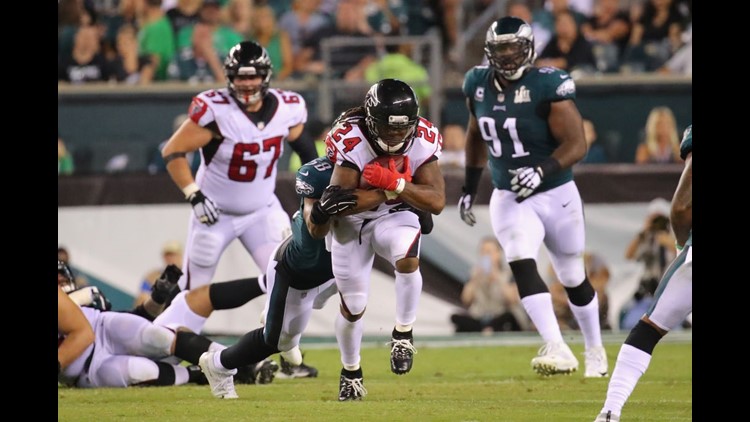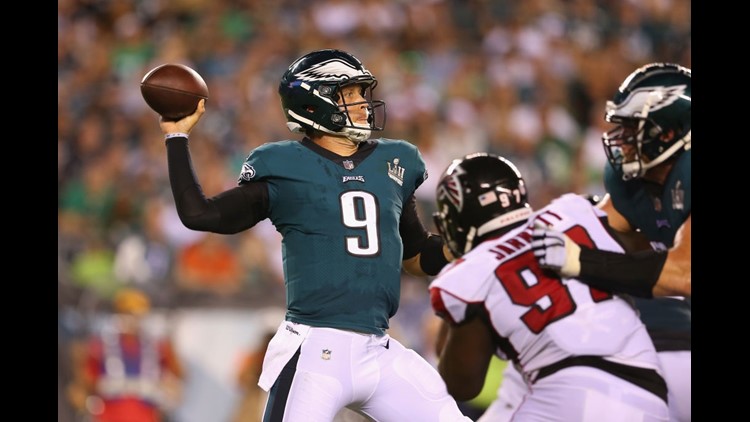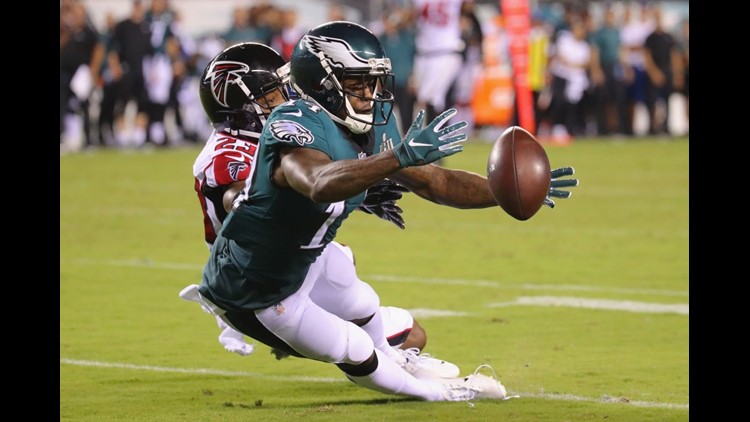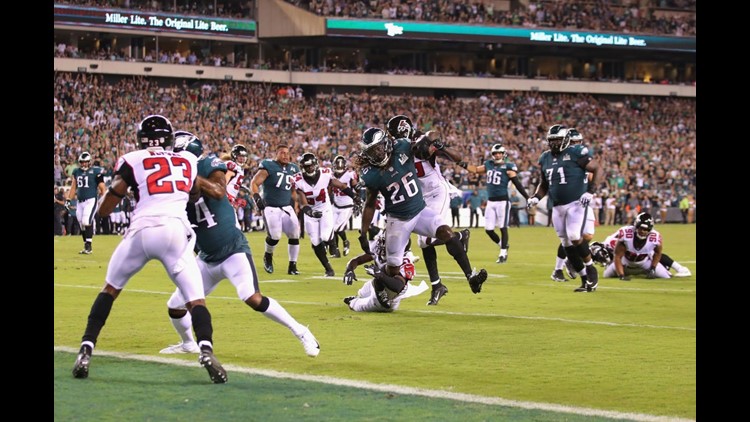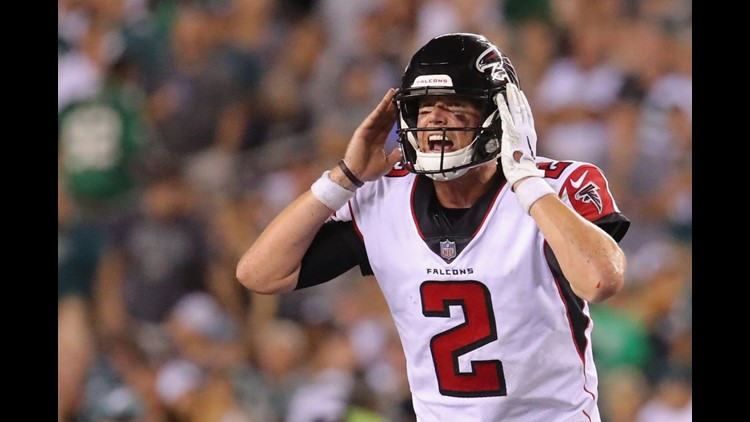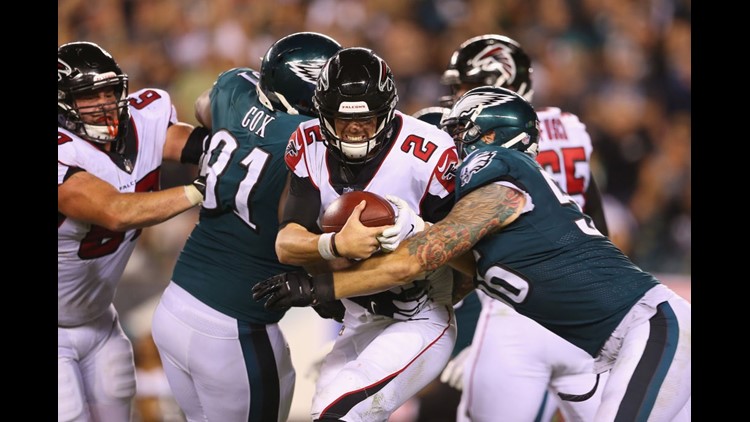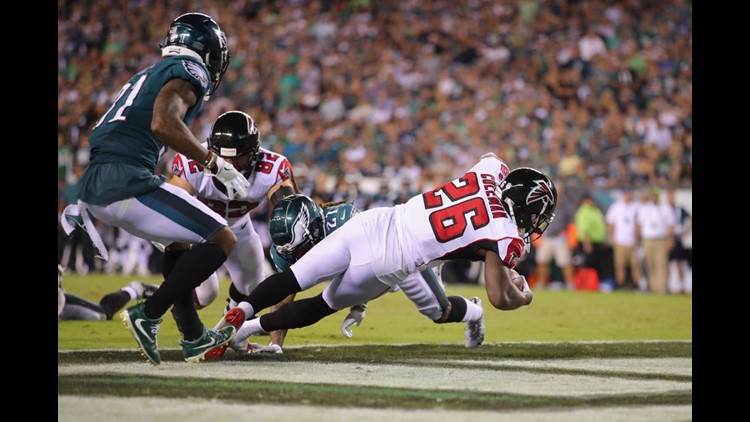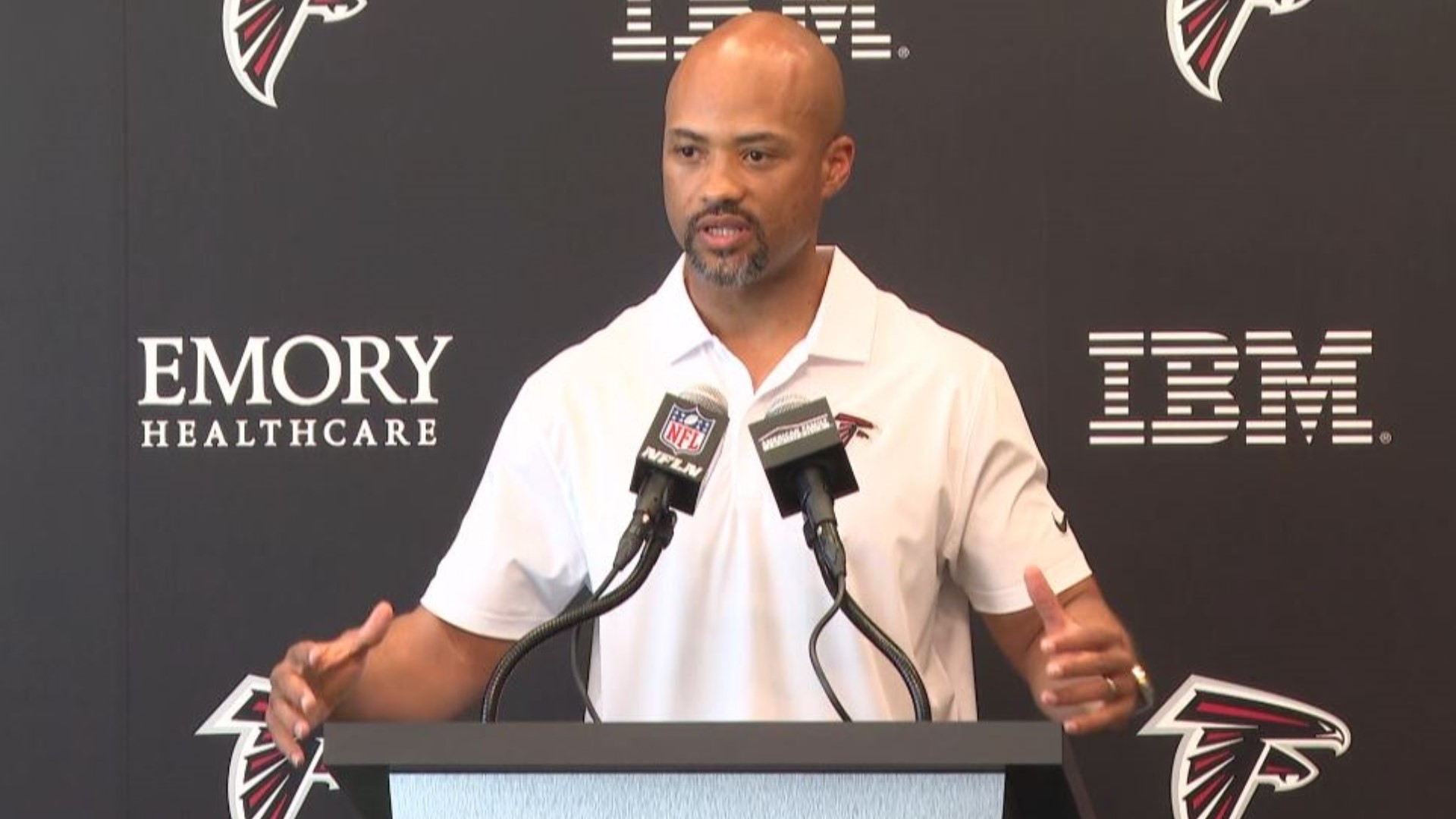11Alive Sports' Jay Clemons serves up four quick observations from the Falcons' loss to the Eagles—a quirky game which featured numerous head-scratching penalties, ineffectual completion percentages from the quarterbacks, one long weather delay, one Harry High School trick play and some curious disappearances, among the lot of Atlanta playmakers.
CLEMONS: Falcons-Eagles game story
CLEMONS COLUMN: 'Philly Special' fallout, red-zone woes define Falcons' loss
WEEK 1 GALLERY: Eagles 18, Falcons 12
1. Quarterback Matt Ryan deserves similar heat to offensive coordinator Steve Sarkisian, regarding the Falcons' failed opening drive
For starters, let's universally agree the fourth-down call/goal-line stand, running Devonta Freeman to the short side, was a bad choice from the laminated play sheet.
From the get-go, the Eagles had been well-positioned to handle the power-sweep attempt, and thus made quick mockery of Atlanta's blocking scheme (zero O-line push, ineffectual blocking fullback), easily preventing Freeman from flirting with the goal line.
However, on the preceding play, Freeman was open in the end zone for a long, hot second (an eternity in the NFL), but Ryan's pass attempt was too much to the inside, allowing Philly to thwart the available touchdown, without much drama.
Now, when watching the game on TV, it's perfectly inbounds to wonder, Why would the Falcons throw the ball on third down, if they were planning not to kick the field goal on fourth down?
Perhaps Sarkisian wasn't privy to Falcons head coach Dan Quinn's line of strategic thinking, until after the Ryan-to-Freeman pass attempt went incomplete.
Or maybe Sarkisian believed the Freeman pass route served as the greatest fail-safe call from the playbook ... and a return to power running was needed on the next snap.
Either way, the whole debacle became a foreshadowing event for the end of the evening.
2. Freeman only logged nine touches in a game that warranted double the workload
We just highlighted Freeman's most infamous plays from Thursday's sigh-inducing defeat.
For every other playmaking opportunity, the fifth-year tailback looked fast, powerful and spry against the Eagles—three wonderful traits for the ensuing weeks of competitive action.
Technically, backup tailback Tevin Coleman (45 total yards) topped Freeman (three-year average: 1,452 total yards, 12 TDs) in total touches (10-9), but neither runner garnered enough chances to change the scope of this defeat.
It's even more galling, when pondering the success rate of the Falcons' misdirection runs during the first drive.
For the most part, this game was a battle of wills, pitting the Eagles defense against the Ryan/Sarkisian preference to target Julio Jones a staggering 19 times—the second-highest output of Jones' stellar career (Week 3 in 2015 yielded 20 targets).
Bottom line: The Eagles might have owned the NFL's No. 1 rush defense last season, but the new Falcons cannot live in absolute fear of an old distinction.
Respect the defense all you want ... but fear leads to passive declarations of offense execution, and that's what happened in the opener.
3. Calvin Ridley had less field presence than 'The Invisible Man' of 1930s-movie fame
The above reference might elicit a chuckle with the older crowd (or modern-day Kevin Bacon fans), since The Invisible Man of 80-plus years ago felt obligated to wear clothing in everyday life, just so his friends, colleagues, co-workers and enemies could experience him on some level.
Ridley, of course, donned his #18 jersey for the ballyhooed NFL debut, but it ended up being the highlight to the rookie's zero-catch, two-target outing.
Should this disappearance be viewed as a long-term concern? Likely not. NFL history's littered with rookie receivers who hardly move the proverbial needle in Year 1.
WEEK 1 GALLERY: Eagles 18, Falcons 12
From a fantasy perspective, it's also a time-tested explanation for why rookie wideouts are seldom counted on for anything more than low-to-middling production.
As in, Hope for the best ... but expect the worst.
Truth be told, Ridley (224 catches, 2,781 yards, 20 total TDs from 2015-17) posted better numbers than Jones at Alabama (179 catches, 2,653 yards, 17 total TDs from 2008-10).
Plus, Ridley's blinding speed and quick-twitch athleticism should work extremely well in the pros—down the line.
What makes us so confident? The great and powerful Jones (franchise-high 40 games of 100-plus receiving yards) didn't record a touchdown until his sixth career game (October 2011 vs. the Colts); and three weeks later, Julio would endure the horror of his lone zero-catch effort in NFL circles.
4. It's time to change the excuse narrative on veteran tight end Austin Hooper
We'll keep this one short and sweet: If the Falcons had a more effective tight end, perhaps their well-chronicled (mis)adventures in the red zone would be upgraded to a minor annoyance.
Instead, Hooper (three catches, 24 yards vs. Philly) seemingly remains the best option of a bottom-rung cluster of lackluster tight ends.
As such, if Hooper—who has registered four or more catches in back-to-back games just once in his career—may have greater upside as a blocking tight end, there's a simple remedy for Atlanta's red-zone flops.
Draft a tight end who prioritizes clean route-running in tight spaces.
(Clasping hands together)
Problem solved.


